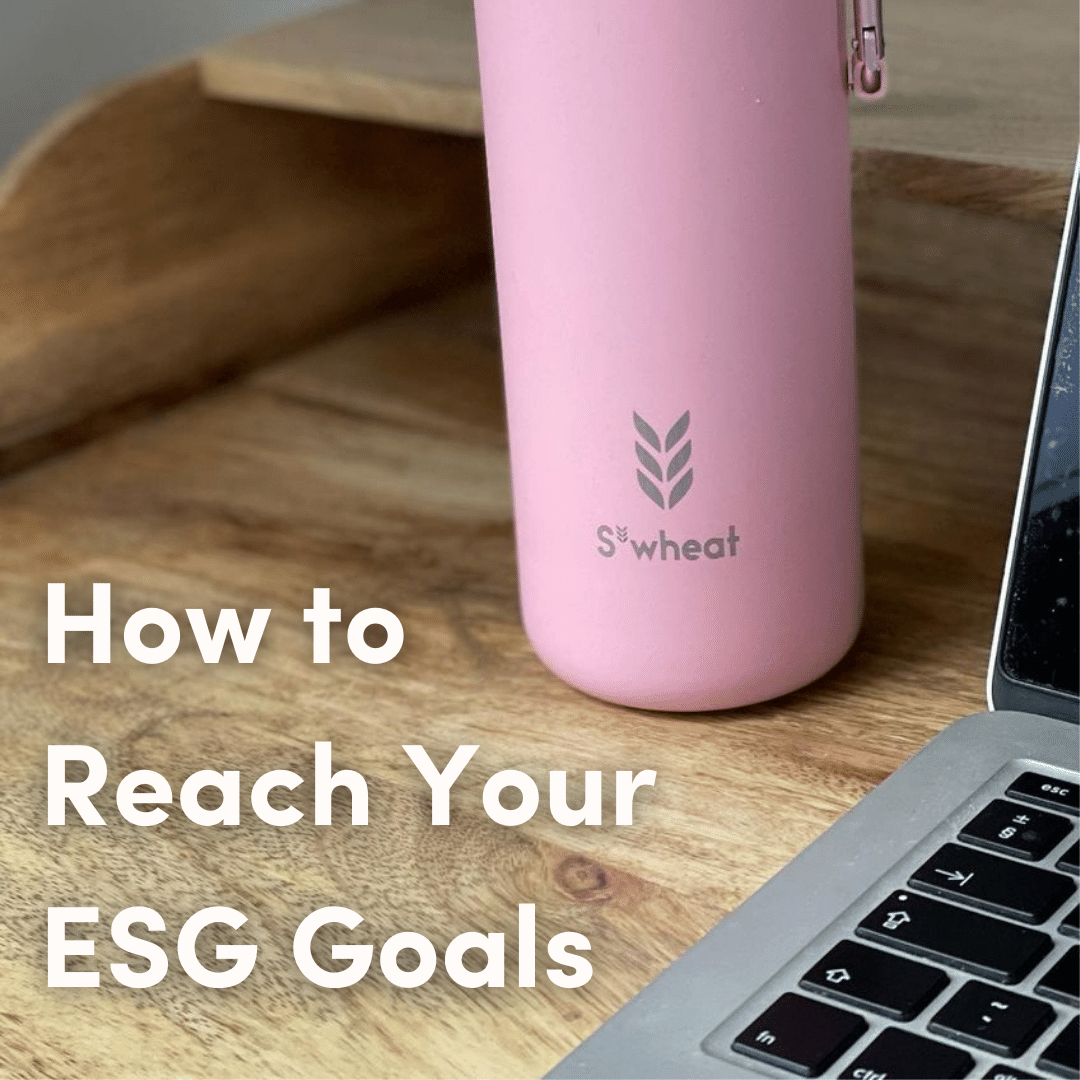Be transparent about your mission
- Have specific ESG goals that you’d like to achieve by a certain point. Maybe you’d like your business to be net zero by the beginning of next year, or vow to use only recycled materials. Demonstrate these goals on your website or social media to help both to keep you on track and to be straightforward with where you intend to lead this brand.
- Be honest about your company values to the consumer, and don’t be vague on where you stand, as this could get confusing and become a greenwashing issue. Always try to be as upfront about where your beliefs as a brand lie - this will also make it a lot easier to find the right audience for your brand.
- Be transparent about your ethical and sustainable practices. Don’t be tempted to bend the truth and claim to be carbon neutral if you’re not quite there yet, even if you’re on track to be. Getting caught in a lie about your ethics is never going to end well, and the consumer will appreciate the honesty if you follow it with a goal in mind to attain this desired result.
Consider your supply chain
- Go as far back as you can. If you’re receiving materials from a company who, at first glance, appears ethical and trustworthy, make sure that they are not associated with another which may not share the same values.
- Maybe the company you buy raw ingredients from sends it to you in bubble wrap or non recyclable plastic bags, or you simply notice that some of their packaging is unnecessary. Consider contacting them regarding an alternative or just asking them not to include a certain part.
- Make sure to read the fine print if you’re not certain they’re 100% up to your moral standards. You may find that their supplier is a largely unethical company or they use an environmentally damaging disposal method.
Hire the right people for the right jobs
- Seek out someone with a sincere interest in the job and/or the company, as well as helping to reach the ESG targets. If it’s not of interest to them it’s likely you won’t get the highest performance out of them - plus, you want to have a nice working environment and that could be difficult if your staff are unhappy in the job.
- Utilise niche talents and ideas. If your employee has a specific skill or interest that’s not being put to use, see if there is a way it can be implemented. For example, someone who is particularly passionate about introducing more plant-based/organic/local foods into the workplace can help to reduce overall emissions, therefore working towards ESG goals.
Promote to employees
- Encourage environmentalism to your employees. Sustainable branded corporate gifts can really motivate staff to get involved in eco initiatives and help show clients and consumers that you’re a brand who really cares about your ecological impact (check out one of our blogs or our co-branding page to read up more on S’wheat co-branding!) This can also be a way to incorporate new eco practices into your workplace, such as replacing vending machines filled with single-use plastic bottles of water with a water fountain and reusable bottles or cups.
- Keep your colleagues and employees informed about any upcoming environmental days or events that may be relevant to your brand or company. For example, an event surrounding sustainable energy could be an opportunity to demonstrate your own eco-friendly energy practices and ideas.
Avoid shortcuts
- Have a plan to be prepared for any setbacks. If you’re overly optimistic about your environmental goals and experience something that means your plans are delayed, this may result in the need to overcompensate with frugality.
- Don’t secretly cut corners or intentionally withhold information to get ahead. Claiming to be eco-friendly when you’re aware of loopholes in this, for example, claiming to be plastic free when your stock arrives packaged in plastic, can simply create mistrust between yourself as a brand and the consumer. Aside from that, the ethics of greenwashing really don’t fit the ethos of a sustainable brand!
Look for opportunities
- Keep an eye out for any collaborative opportunities that may crop up. Working with a like-minded brand can be a mutually beneficial experience to share your product with an audience of similar interest, particularly if the product is different from yours but the eco-friendly aspect is the same. Anything from co-branding to guest posts to giveaways can really help your audience reach.
- Timing your posts or product launches with seasonal or national themed days is a good way to remain involved in topical environmental news. Eco-friendly festive product releases or discounted deals for Earth day can keep your brand in the loop with other sustainable brands and consumers who are interested in finding these brands. It also gives you a chance to update on where your brand is with ESG goals so you can demonstrate your progress.
- Participating in podcasts and events can allow you to tell your story to a whole new audience. Whether business related or otherwise, you can speak up about your brand and what it’s doing to consistently improve on the ecological footprint is a great way to create brand awareness and show that you’re part of a brand who really cares. Business events can also be a nice social way to showcase the eco elements of your business - and a great place to hand out your promotional branded S’wheat bottles!
Give back
- Associate with charities and brands who have a set environmental mission. Choosing to donate a portion of profits or using an eco-friendly manufacturer for supplies and resources is an easy way to give back to the earth and reduce your carbon footprint or plastic waste.
- Making small changes around the workplace such as switching to solar energy, replacing single-use plastic around the office, or even just starting a recycling programme at work can make the world of difference in the long run. Making just a few subtle adjustments like these can be inexpensive and just the thing your workplace needs to reach some of your ESG goals.
- Involving your business in environmental charity events, or even making your colleagues and employees aware of local related conferences and other events can bring the workplace together to tackle issues like climate change and pollution.
Want to boost your ESG goals? Interested in co-branding with S’wheat? Make an inquiry on our co-branding page today!
For each branded bottle purchased, we will plant a trackable native tree in your company's name and provide unique QR codes to each tree planted, along with a statistics report with information about the species and growth and information on your ecological impact. Take a look at our S’wheat forest with Ecologi, where we’ve planted over 8,000 trees already!
Co-branding with S’wheat could not be easier! Here is our simple co-branding process:
- Choose your bottle from one of our four distinct colours or choose a Pantone colour so we can match to your branding
- Send us your logo and we will create a mock up image for you
- We engrave your bottle with high-quality laser engraving or we can offer a colour printed logo.
- We will plant a minimum of 50 trees in your company’s name and remove plastics from the ocean.




Leave a comment
All comments are moderated before being published.
This site is protected by hCaptcha and the hCaptcha Privacy Policy and Terms of Service apply.